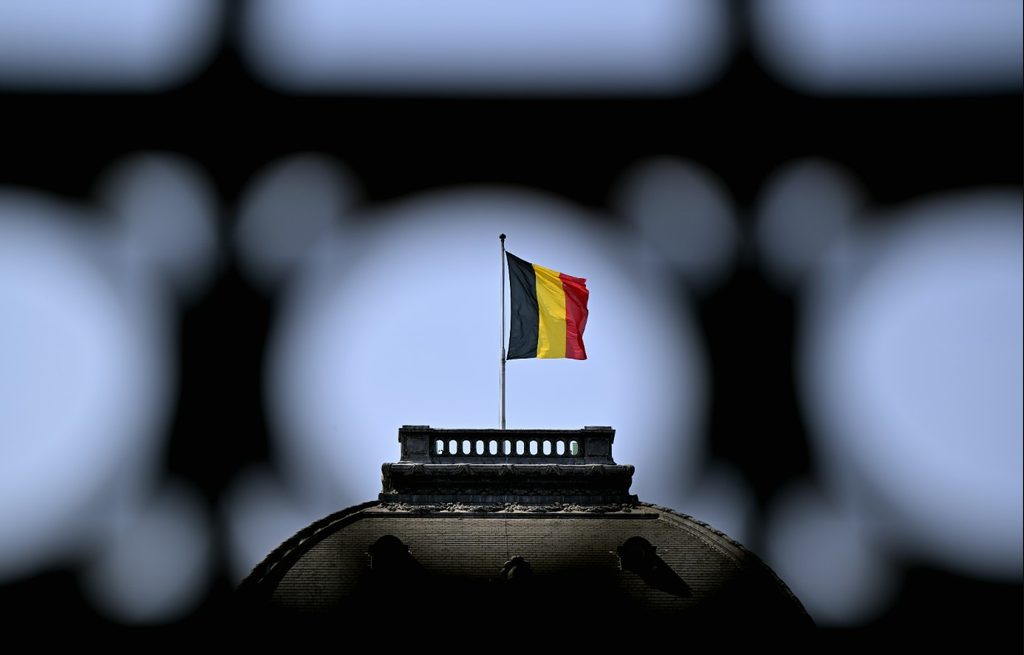Now 100 days since Belgium held federal, regional and European elections on 9 June, three of the country's six governments have been formed. However, the other three are no closer to being finalised.
Political experts were at first optimistic that the formation processes – particularly for the Federal Government – would be much swifter than has previously been the case. But more than three months later, their expectations have not materialised.
While Wallonia was very quick to settle matters, the rest of Belgium is much further from governing coalitions.
Federal discussions run aground
With voting outcomes surprisingly clear after 9 June, the results pointed towards a coalition that on paper looked relatively straightforward.
On the French-speaking side, green party Ecolo and the usually "incontournable" Socialist Party lost, while liberal MR and centrist Les Engagés did remarkably well. In Flanders, rightwing N-VA did much better than expected, with centrists CD&V and socialist Vooruit also harvesting a decent proportion of the vote – at the expense of Groen and liberal Open VLD.
In light of these results, the most obvious partners to enter formation talks were N-VA, CD&V, Vooruit, MR and Les Engagés, which ideologically are not too disparate and crucially, can together muster a governing majority.
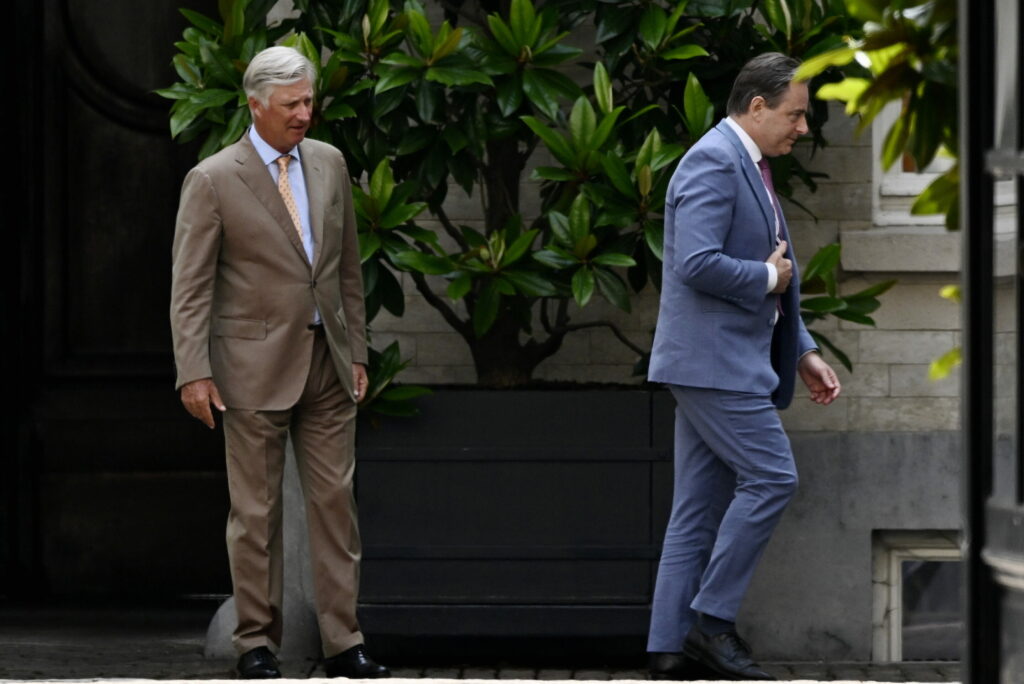
N-VA leader Bart De Wever and King Philippe. Credit: Belga/Nicolas Maeterlinck
King Philippe promptly appointed N-VA leader Bart De Wever as informator, a role that was upgraded to formator at the end of July. This was taken as a sign of smooth progress.
But things went awry in August when De Wever presented his now infamous "socioeconomic super note" – a document that outlined big reforms in taxes, pensions and the labour market. While Vooruit (as the only left-of-centre party in an otherwise centre-right coalition) was initially hesitant about the proposals, it was ultimately antagonism from MR leader Georges-Louis Bouchez that scuppered talks.
The King then appointed Les Engagés leader Maxime Prévot as mediator in an effort to calm everyone's tempers. He succeeded in his mission by changing the way the negotiators work: they will first seek agreements on less sensitive topics and later return to the budget.
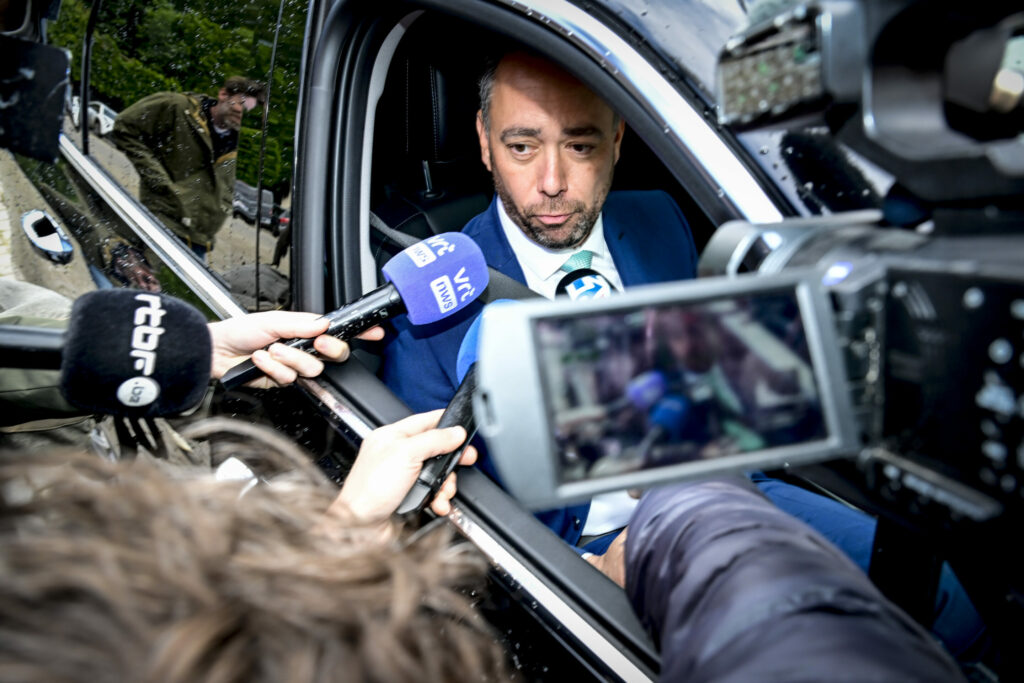
Les Engagés' leader Maxime Prévot pictured while arriving for his meeting with the King. Credit: Belga/Dirk Waem
After ten days of Prévot cooling the tensions, De Wever returned to his role as formator. However with less than a month to go to the municipal elections on Sunday 13 October, no party is eager to make concessions. Working groups are being organised and negotiators are trying to iron out differences and resolve some minor issues. But important discussions will likely wait until after the local elections.
Last weekend, Prévot stressed the importance of forming a Federal Government as soon as possible – hopefully by the end of October. "If the reforms are to be noticeable from 2025, then Parliament will have to vote on them by the end of this year," he said.
"If some people think that Sinterklaas (6 December) or Christmas is a good deadline, then we will be in trouble. And then we will not be able to do much in 2025."
After a flying start, Flanders misses the mark
As with federal discussions, the Flemish puzzle looked simple at first: N-VA remained the largest party so was allowed to lead talks. The party favours Vooruit and CD&V as coalition partners, but these both bring social demands to the table that are not easy for N-VA to accommodate.
De Wever also held the initial role of informator but later passed on the formator role to party colleague Matthias Diependaele. Work progressed steadily until last week when CD&V leader Sammy Mahdi said on live television that N-VA's proposals did not satisfy his party.
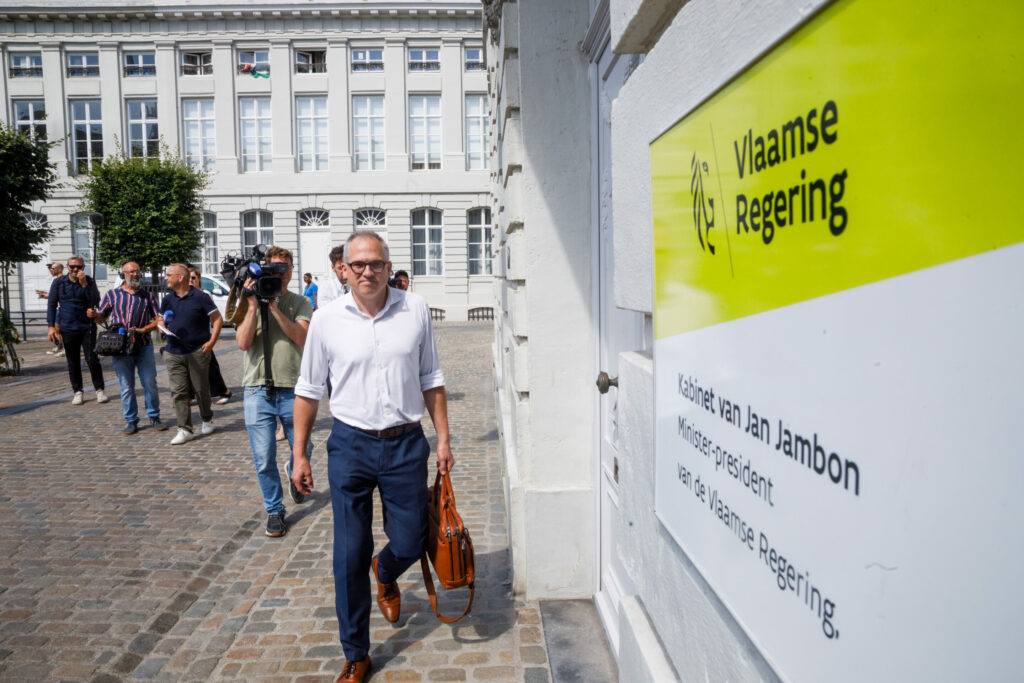
N-VA's Matthias Diependaele. Credit: Belga/Hatim Kaghat
While the Flemish formation seemed to have reached an impasse, all parties were back at the negotiating table a day later.
Over the weekend, Vooruit leader Conner Rousseau suggested that an agreement – and possibly even a new Flemish Government – could be achieved before the local elections. But the concessions required of the various parties will be less significant than at the federal level.
The Brussels deadlock
In light of the election results, political experts were under no illusions of the challenges that would come with forming the Brussels Government. As well as facing huge budget constraints, common ground must be established between Dutch-speaking and francophone parties.
The process is uniquely complicated as majorities must first be formed for each language, after which the two majorities enter into talks to settle on a coalition agreement.
On the French-speaking side, a majority was found quite quickly: winners MR immediately decided to work with Les Engagés, while socialist PS joined at the start of August. On the Dutch-speaking side, however, negotiations are blocked.
The coalition envisaged by Flemish greens Groen would bring together Vooruit and Open VLD. But this is one seat short of a majority. And finding a fourth partner has proven extremely difficult – if not impossible. Christian Democrats CD&V refused to join the talks as the smallest partner (which means the party would not get a ministerial position). The other options – rightwing N-VA or Team Fouad Ahidar – both come with their own complications.
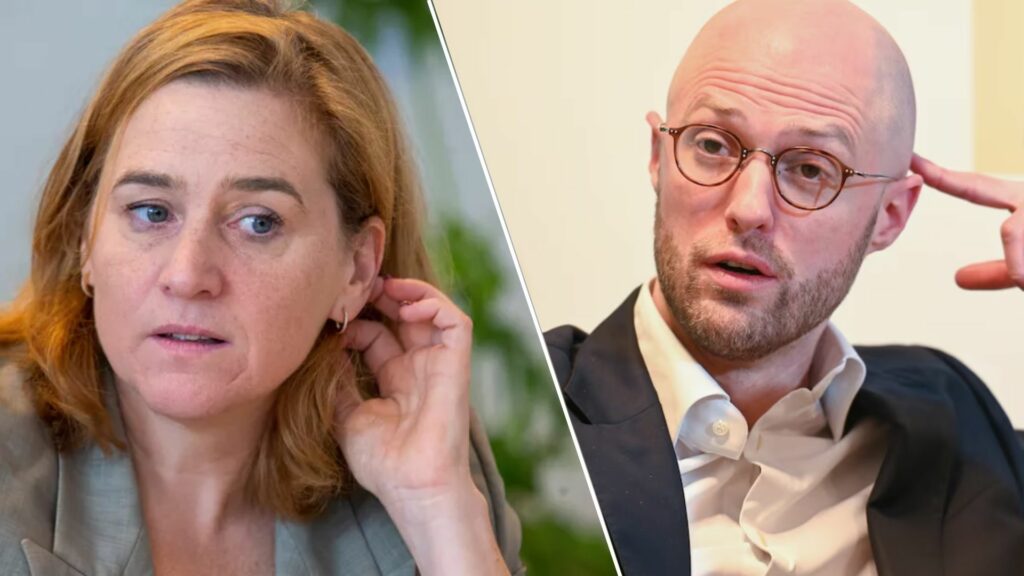
Groen's Elke Van den Brandt (left) and MR's David Leisterh (right). Credit: Belga
The equation was made even more difficult at the start of the month, as the Francophone majority submitted a proposal to postpone the stricter Low Emission Zone (LEZ) standards by two years. This was done without consulting the Dutch parties.
With accusations of a "betrayal", Van den Brandt called for the postponement to be revoked. She suggested temporary solutions, such as temporarily freezing fines for those in violation of the stricter LEZ. But her French-speaking partners ignored her calls to compromise.
A social media post by federal MR leader Bouchez threatening to put the Good Move mobility plan in the bin threw even more oil on the fire. On Friday, she called a press conference to announce she had had enough of MR's provocations and that she was quitting as formator.
It is currently not quite clear how to proceed. While Les Engagés called on everyone to continue talking, Fouad Ahidar – who several parties do not want to enter into a coalition with over several party points around religion – is trying to mediate. Where all this ends, no one knows (yet).
Walloon Region and French Community Government
In the French-speaking part of Belgium, things went extremely smoothly. Due to the PS's electoral loss, and the wins by MR and Les Engagés, the new Walloon Government and the new French Community Government were both already formed on 11 July (which, ironically, is the Flemish holiday).
This MR-Les Engagés partnership also puts an end to decades of PS rule south of the language border, which MR said led to years of stagnation and economic malaise.
Very quick German-speaking Community
Barely four days after the elections, the German-speaking community already had a new government. The regionalist ProDG of Minister-President Oliver Paasch is joining forces with the Christian Democratic CSP and the liberal PFF.
The socialist SP is moving to the opposition for the first time since 1990.

